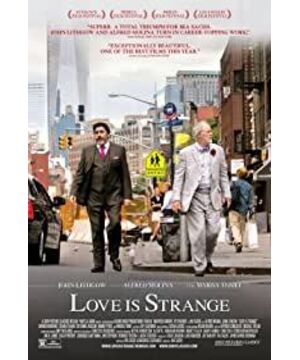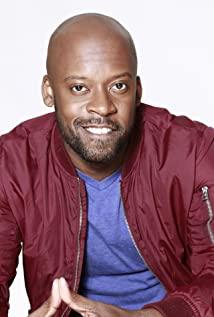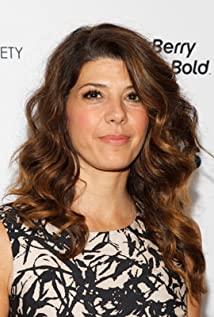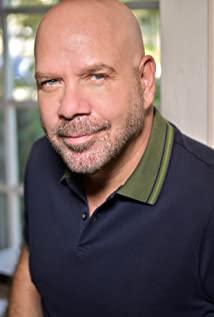that the name Ira Sachs (Ira Sachs) is a bit strange, but he is not a new director. Since the 1990s, he has shot no less than six works. Among them, "40 Blue Shadows" won the best feature film at the 2005 Sundance Film Festival, and "Light Up" won the Teddy Bear Award at the 62nd Berlin Film Festival. Compared with these honors with a sense of distance, his The new film "Love Is Strange" is more approachable, and it is definitely an unexpectedly warm masterpiece. It's still a gay theme, but compared to the sweetness and pain between lovers in "Light Up", "Love Is Strange" is mature, full, full of familiar breath of life, and full of the true meaning of feelings. The appearance of this film indicates that queer movies are moving closer to the mainstream. Of course, the social and cultural environment of Western society provides a background guarantee. The director has already chosen the mainstream expression of gay themes or gay perspective in "Light Up the Lights", and this time he has indeed taken a big step forward.
The film tells the story of George and Ben, a pair of same-sex couples living in New York. George is a music teacher at a church school and originally a painter. They lived together for 39 years and finally held a warm and romantic wedding, but problems followed. As a result, George lost his job as a teacher and financial problems forced them to move. Before finding a new apartment, the two were forced to live apart and stay in the residences of friends and family. Accompanied by Chopin's piano music, the plot narrates casually. It is a series of life-like details laid out that make the film calm and smooth, as well as the texture and weight of life itself. The director explored the two things that make people unable to calm down in the simplest way-love and prejudice.
When the director expressed the love between the couple, he focused on the mutual dependence of the two. The "strange" love has kept the two together for so many years without being separated. The director did not waste any pen and ink on areas that are more concerned with general queer movies, such as same-sex weddings or intimate scenes. The night when Ben was staying at his nephew in Brooklyn, George came to visit him, and the two lied up and down on the cramped bed of Brooklyn’s son, Ben’s grand-nephew Joey, and chatted when they finally couldn’t help it. When they squeeze into a small bed, the two of them hug each other. At that moment, love is companionship and habit. It is more moving than desire and passion. When the two have a rare opportunity to go to a bar for a drink, tease the bar waiter, and talk about the time they spent together day and night, love is the tacit and trusting look of the two when they look at each other, although the real helplessness and difficulty have been left on their faces. Deep traces underneath. At the end of the date this evening, the two walked with their backs to the camera on the streets of New York at night, chatting and walking towards the depth of the camera. Ben said that when they went to the gallery together, he had hoped that one day he could also hold his own exhibition. When George sent Ben to the subway station, Ben slowly walked down the steps and disappeared under the horizon, leaving behind a quiet and undercurrent New York streetscape, and this time was also the final parting between the two that the director presented to the audience. When our grand-nephew Joey appeared in George’s new apartment, we learned from the conversation between the two that Ben had passed away. Joey brought Ben’s unfinished painting when he lived in his house, which was also the last of his life. This painting, New York under his brush is simple, clear, and full of tenderness. When George has been watching this painting for a long time, we can't help thinking of the unfulfilled wish, true love and regret, and Ben's life has been wonderful enough. When Joey left George's house, there was a long shot of Joey crying bitterly on the stairs. It was the finishing touch. The emotional line between Uncle Ben and his nephew Joey clearly showed the emotional changes between Ben and his family. There are two reasons for Joey’s crying. On the one hand, he was guilty of being prejudiced against homosexuality. On the other hand, he was grateful. It was Uncle Ben who taught him what love is, which will make him use it for a lifetime. . So when Joey appeared with his girlfriend in the next scene, the answer was self-evident.
Regarding the performance of prejudice, the director also took care of it, but it was thought-provoking. When Uncle Ben asked his great nephew Joey's good partner to be a model for him, Joey was very disgusted and thought this behavior was gay, and the word "gay" means "stupid" in his incomplete worldview. , We can see the depth of his prejudice. When Joey’s parents, especially Ben’s nephew, Brooklyn, noticed the danger that his son was too close to the partnership, he immediately intervened, so to some extent, Joey’s homophobia came from his father, Brooklyn. Lin, Brooklyn can accept that his uncle is gay and support him to have a same-sex partner, but when his son shows some suspicious signs, he can't bear it. This is indeed an intriguing detail. At this time, Ben stood up and supported him. Joey, advise them not to overreact, at least Joey is not so isolated now and has a friend. That night, Uncle Ben, who was sleeping in the lower bunk, chatted with his grand-nephew Joey. Ben asked Joey if he ever felt in love. Joey immediately replied that he was not gay, and Ben was talking about love, regardless of gender. He told the boy to treat him. Love has really opened up, and if there is no suggestion from Uncle Ben, there might not be the last shot. Unlike the prejudices that he received from within the family, George received more from society. Religion and morality restricted his choices everywhere. When he taught piano lessons to a little girl, the piano sound was mixed with George’s narration. He was reading and writing a letter to the little girl’s parents, thanking them for their tolerance and understanding of his private love life over the years, but very Regrettably, he could no longer teach their children, and then he secretly wiped the tears from the corner of his eyes.
Although gay marriage has been legalized in many countries, the protection of homosexual rights has also been regarded as absolute "political correctness" by many European and American countries. But the reality is that many people still cannot accept it. At the beginning of October this year, there were still demonstrations in Paris, France against the legalization of same-sex marriage, and before the French National Assembly passed the bill in May last year, angry people had already fought fiercely. It can be seen that there is indeed a long way to go from "legalization" to being able to be recognized and truly accepted. These subtle attitudes and emotions are captured by the director to better serve the narrative.
The film is a queer movie. Although we almost forgot the label during the viewing process, the two protagonists are not only queer, they are also a pair of life partners who have been in love for many years. In the director’s words, love is capable Beyond gender dualism. Secondly, the director did not use the stunts of certain queer movies, such as nudity, sex scenes being watched, etc., to limit the audience of the film to the queer group. This is also an important reason for the film’s mainstreaming characteristics. one. When the social identities of the protagonists of queer movies are legalized, they still have to face the helplessness and troubles of life, although at this stage, their own confusion has been resolved.
Director Ira Sackstein said that the inspiration for the story came from his own life, and the last unfinished painting in the film was painted by the director's husband.
View more about Love Is Strange reviews











